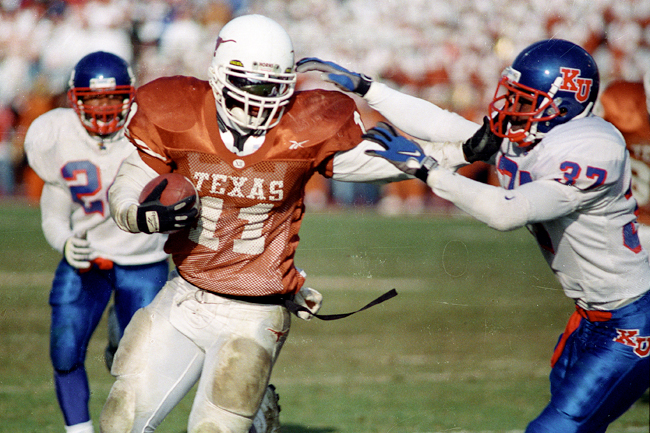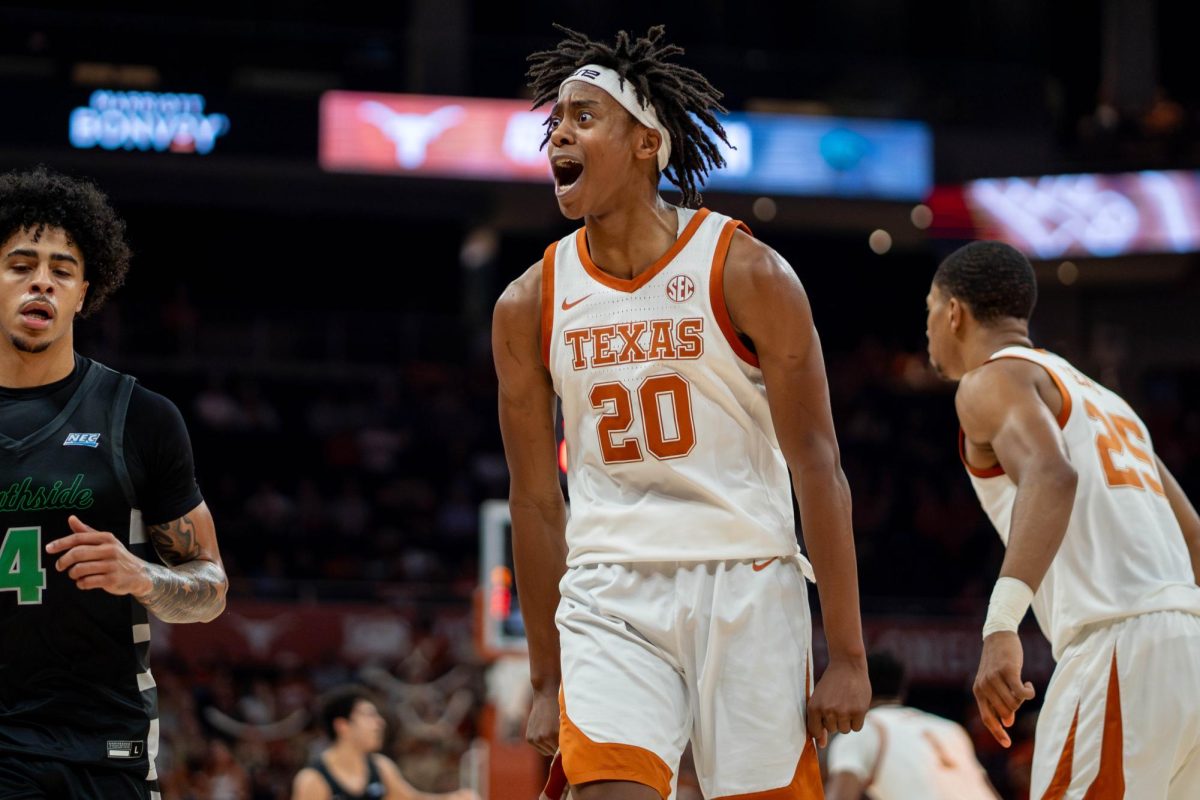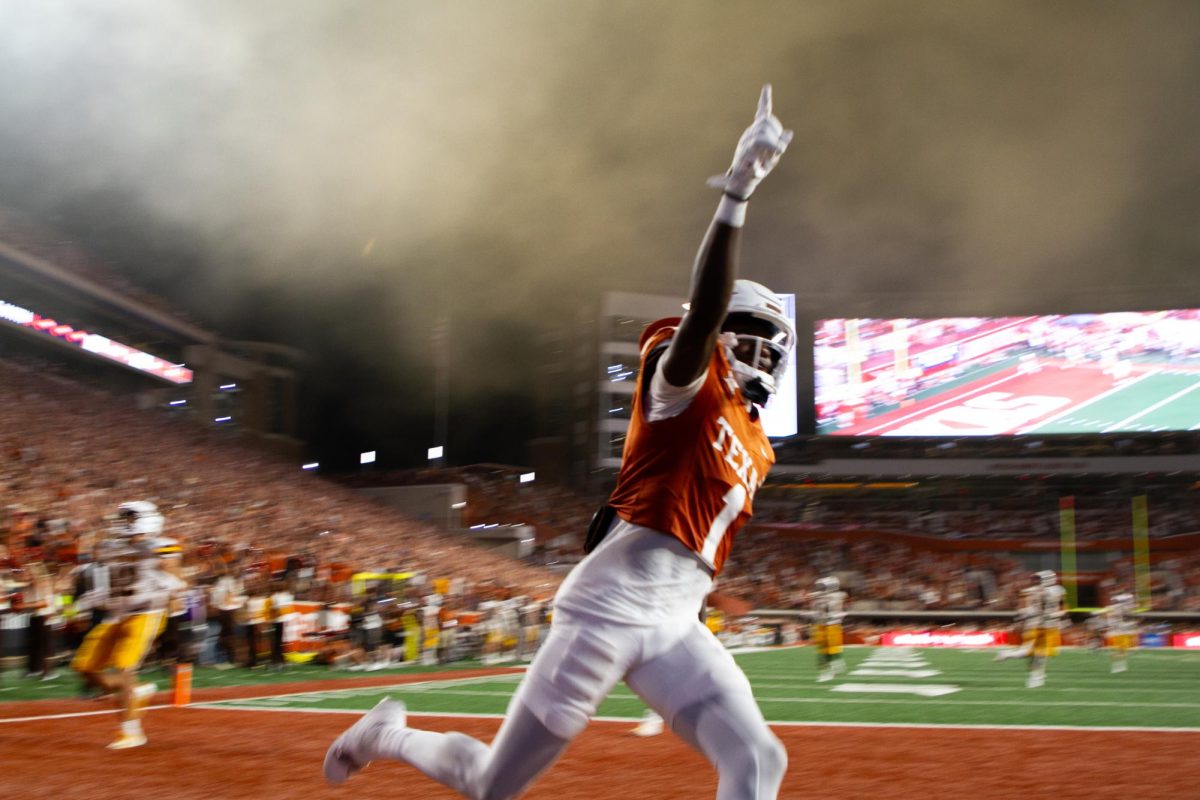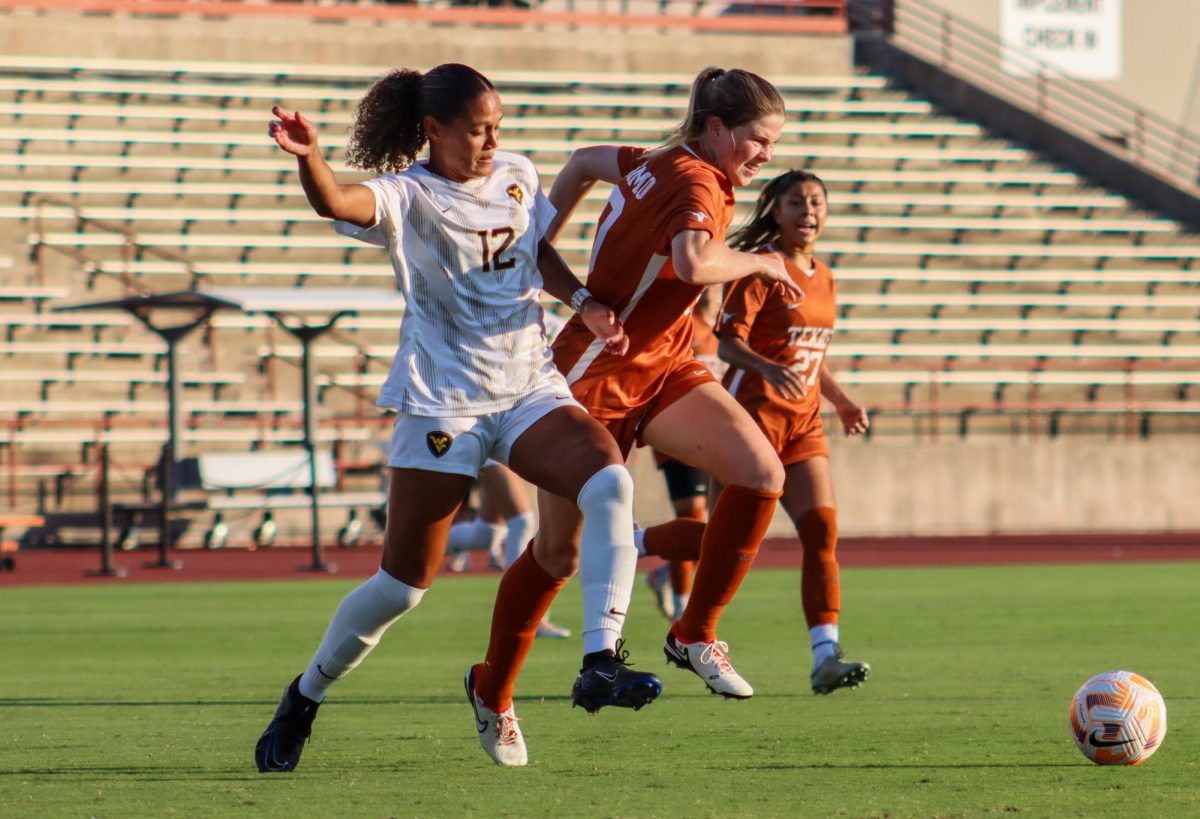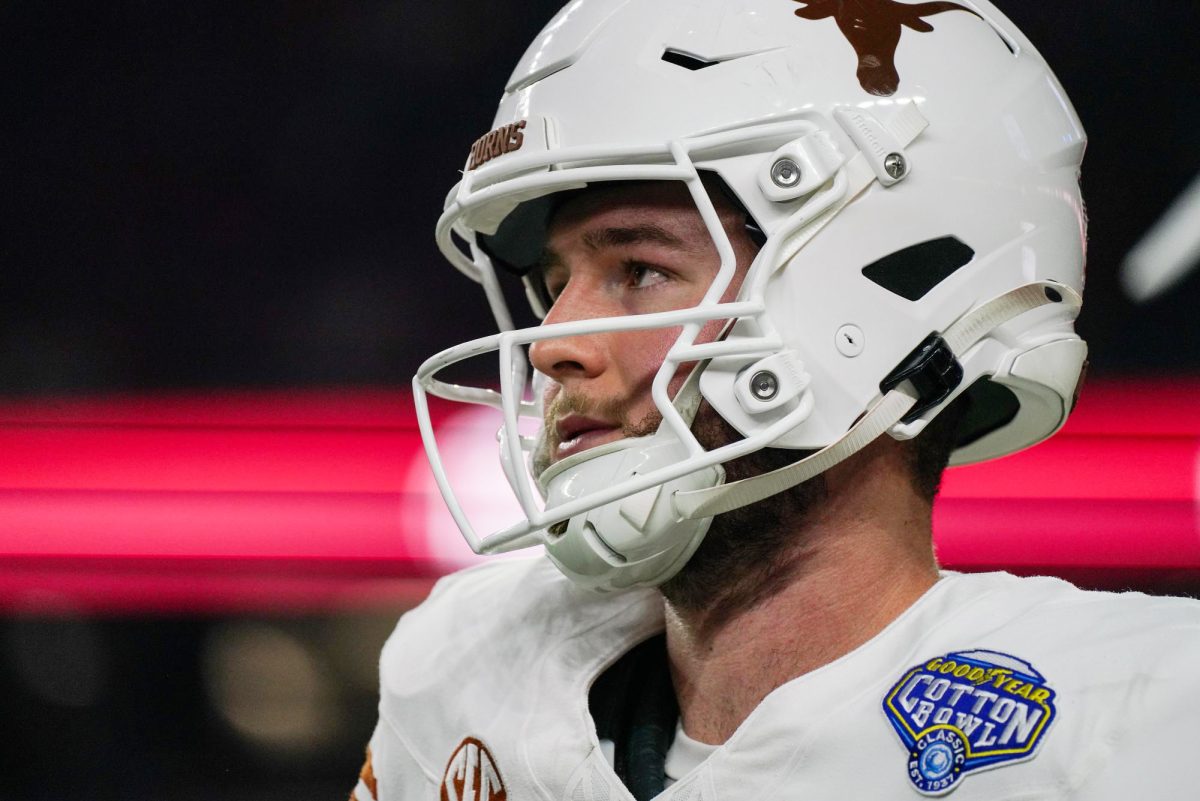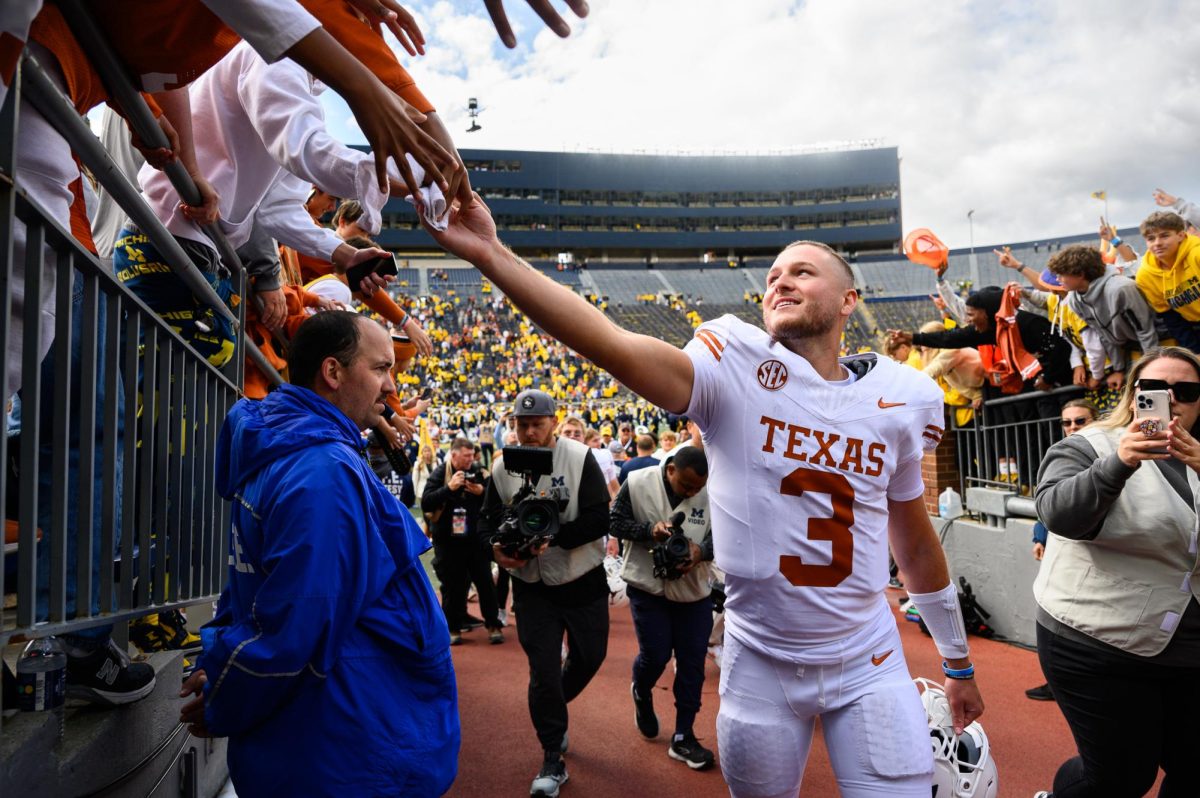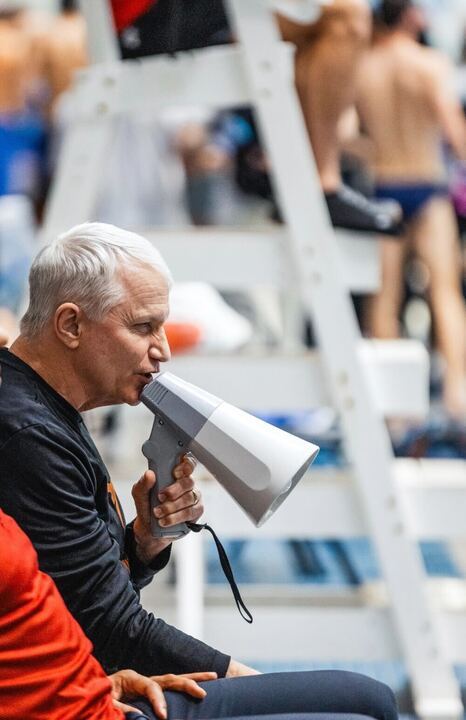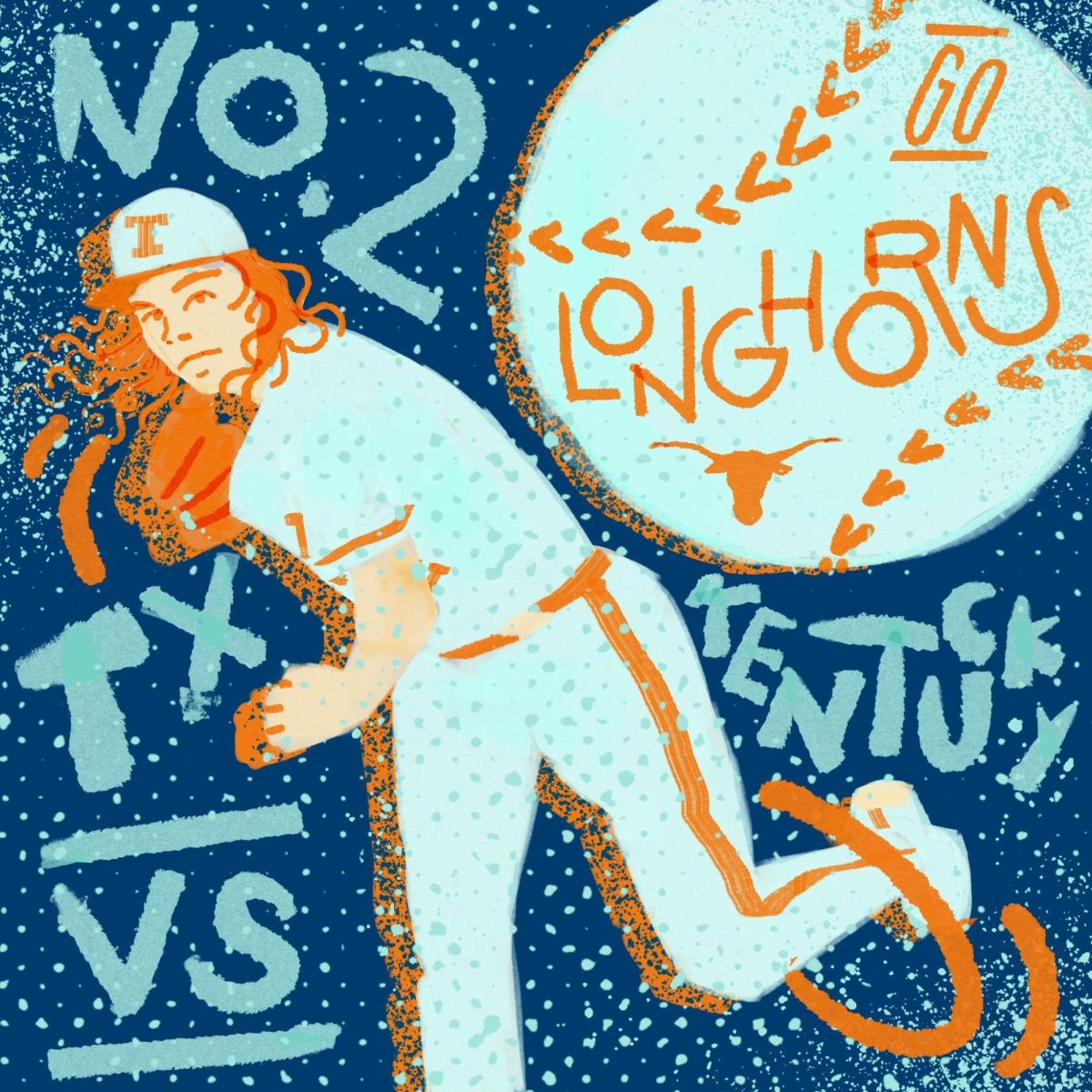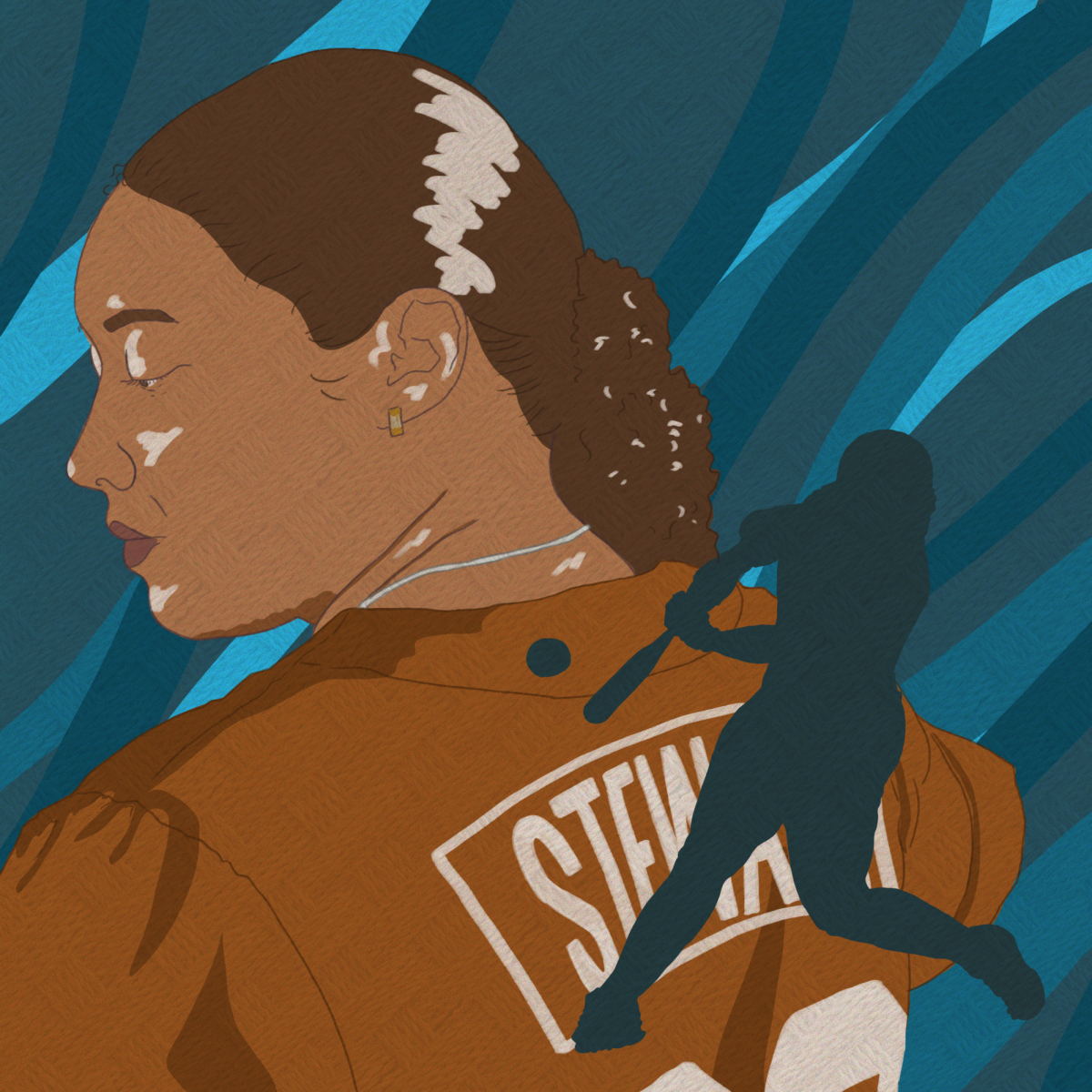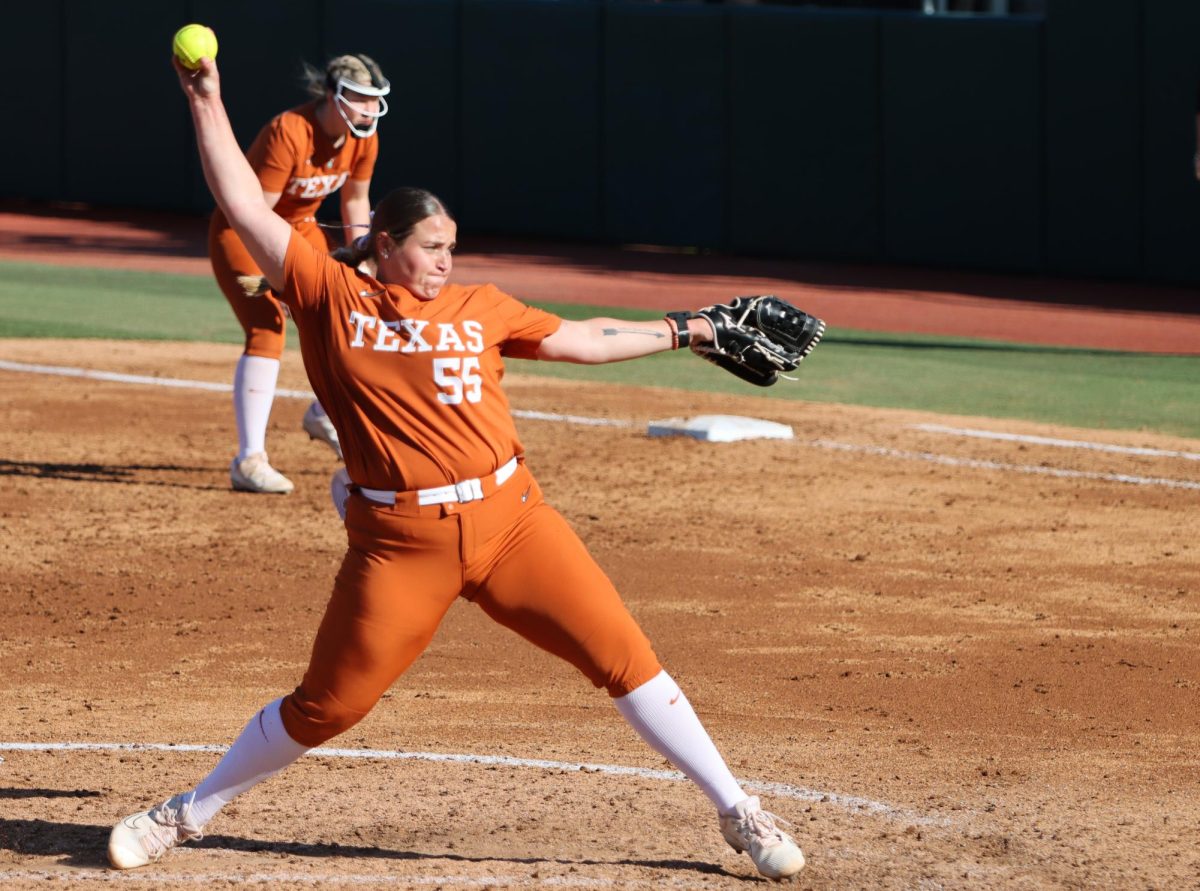Ricky Williams was Texas’ best football player of the last two decades, and arguably one of the best in school history. He ran for 7,206 yards and 72 touchdowns, won a Heisman Trophy and earned back-to-back NCAA rushing and scoring titles. He played 11 seasons in the NFL, a rarity these days, and is currently 26th on the all-time rush leaders list with more than 10,000 yards behind him. However, Ricky Williams’ biggest accomplishment as a football player was that he humanized the sport.
Much was made of the 34-year old’s NFL career, which came to an end after Tuesday’s announcement. The scrutiny started in New Orleans where he was good, but never explosive. It was then that he began to really feel the effects of his later revealed social anxiety disorder, a mental illness that acts like a tenacious gnat in the brain. It’s characterized by a persistent and irrational fear that people are constantly judging the sufferer, and it makes social situations unbearably painful to handle.
Williams was always shy, but many saw his aloof nature as something to scoff at. The truth was that he honestly couldn’t handle the basic task of confronting people. He used to wear his helmet into the press room when talking to reporters because he felt safe behind it. Williams sometimes literally ran away from fans as they approached him, not because he was cold, but because he was feeling incredibly anxious. He often barely associated with his New Orleans teammates.
“Most definitely [my social anxiety disorder] affected my ability [to be a leader]. I didn’t want to talk to the guys much,” Williams said in a 2005 interview just before making his comeback into professional football. “A lot of what makes a good leader on a team happens off the field.”
Most of off-the-field-Ricky became on-the-front-page-Ricky. His multiple failed drug tests were publicly scrutinized and fans saw him as selfish and a burnout. His durability was called into question, and his passion for the sport was swept under the rug for media types to attack only what they saw on the outside. To Williams though, his first disappearance from the game in 2004 was the “most positive thing” he said he did in his life, because it allowed him to confront his anxiety and seek treatment. No one saw this as courageous even though fewer than 15 percent of the one in five Americans that suffers from some form of a mental disorder will seek treatment.
“They should not feel that they are weird or not normal,” Williams offered as advice to those with anxiety in that same 2005 interview. “Confronting it and getting help are the key.”
At Texas, Williams ran with such gusto and passion that it was easy to forget that behind the longhorn logo and the retired jersey number that hangs in the heavens of Darrell K Royal-Memorial Stadium, there was a kid with more than just the everyday fears that afflict college students. Social anxiety disorder goes beyond being unable to handle public situations. Sufferers say it is a 24-hour cycle of stress. Williams braved it while at UT, and Mack Brown is one of the people to thank. He understood Williams’ on and off the field better than most.
“Ricky had a tremendous football career, and we’re looking forward to seeing a lot more of him notw that he’s retired,” Brown said. “One thing I know for sure, Ricky accomplished a lot on the football field, but he aspires for even more in his career after football.”
We have a tendency when we are younger to idolize our sports heroes, and we should, because they are our role models who can do extraordinary, super-human things. But its easy to forget what it is that makes us all human. Sports stars are afforded a sterile form of celebrity when they first step on the scene, and then any actions that occur thereafter, good or bad, are judged in a vacuum.
His retirement is sad, because the game will miss him. But make no mistake, Williams lives for things beyond football now even though it was one of his greatest loves. I had a chance to speak to him a little less than a year ago during the NFL lockout and when I asked him how what the downtime afforded him a chance to do, he said pretty much everything. He wasn’t focused on football any more than he was on his disorder. Instead he said he wanted to spend more time with his children, something he said he was unable to do before seeking treatment for his anxiety, and focus on his charity work.
“My football career has been filled with many great memories going back to pee wee football,” Williams said in a statement yesterday. “It has been a big part of my life and blessed me with so many wonderful opportunities and the chances to connect many people who have helped me grow and mature. I love the game and leave it feeling fulfilled, proud, in great health and excited about the future.”
The future for Ricky should be celebrated as a story as big as his football career. It represents the very real narrative of resilience conquering hardship, and it does it in an intangible way that will never require us sports writers to scrutinize his statistics, his injuries or his productivity. We can finally examine him as simply human as we should have done all along.
“As for what’s next, I’m excited about all the opportunities ahead,” Williams said. “Continuing my education, running the Ricky Williams Foundation and whatever other opportunities present themselves.”

